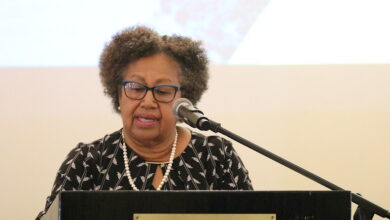TRAINING gaps among health and social service workers contribute to an environment of stigma and discrimination for men who have sex with men and sex workers, according to an international report.
#The study conducted by Family Health International’s Communication for Change project, and funded by USAID/PEPFAR, revealed that nine people were reportedly denied medical services because they identified as MSM (sex with men), and 25 people were denied medical services because they were known or suspected to be sex workers.
#Gossip was the most predominant form of enacted stigma, according to the report, which stated that discrimination was highest for people living with HIV, followed by MSM, and then sex workers.
#Published last month, the data is based on a 2012 study on stigma and discrimination toward men who have sex with men (MSM) and sex workers within heath facilities and social service organisations in The Bahamas.
#The report read: “This study found a significant training gap among HF (health facilities) and SSO (social services organisations) workers in The Bahamas related to HIV and working with key affected populations. Not only was training exposure low, but when it was present, it was not significantly linked with decreased measures of stigma and discrimination.
#“The lack of providers considered key affected population-friendly within The Bahamas and lack of services outside of New Providence were other barriers found. When services are accessed, the findings from this study suggest that people living with HIV and key affected populations face an environment of S&D (stigma and discrimination) that may be fuelled by fear of HIV transmission and moral judgments.”
#The study separately sampled 80 workers from 14 public and privately owned health facilities; 24 workers from social service organisations that service key affected populations; 419 sex workers; and 444 MSM on New Providence, Grand Bahama and Abaco.
#Sex workers were recruited from “popular sex work sites”, including clubs, massage parlours, hotels, bars and the street, according to the report.
#Across different types of training, HF workers were found to be untrained in greater proportion to SSO staff, according to the report, which stated that half of the HF workers sampled were untrained in HIV prevention.
#The findings were recommended as a baseline of stigma and discrimination within health and social sectors, according to the report, which called for widespread training and an assessment of the level and quality of training received by health facility and social service workers.
#The report read: “Along with establishing a baseline for the level of S&D within these two environments, the study sought to understand the association between staff training, or lack thereof, and reported S&D. It also sought to explore the degree to which layered stigma existed.
#“Layered stigma is HIV-related stigma combined with stigma towards marginalised groups – a phenomenon frequently experienced by MSM and SW in general as they are often assumed to be core transmitters of HIV infection.”
#The study called for the strengthening or establishment of policies that would encourage compliance to ethical guidelines, standards of case, and the protection of the rights of clients.
#It also underscored the need for increased activities and interventions to develop a supportive environment for people living with HIV, men who have sex with men (MSM), and sex workers to access quality health and social services; and for the introduction of a new concept that would allow for referral to key affected population-friendly providers.
#Family Health International’s Communication for Change project provides technical assistance in social and behaviour change communication to improve the quality and scale of the country’s response to the HIV/AIDS epidemic.
#Other recommendations listed include: training for both clinical and non-clinical staff in HIV prevention, stigma and discrimination, interpersonal communication, and consideration for working with people living with HIV (PLHIV) and key affected populations; scale up of HIV prevention efforts and greater involvement of PLHIV and key affected populations; and increased prevalence and behavioural studies related to MSM and sex workers.






